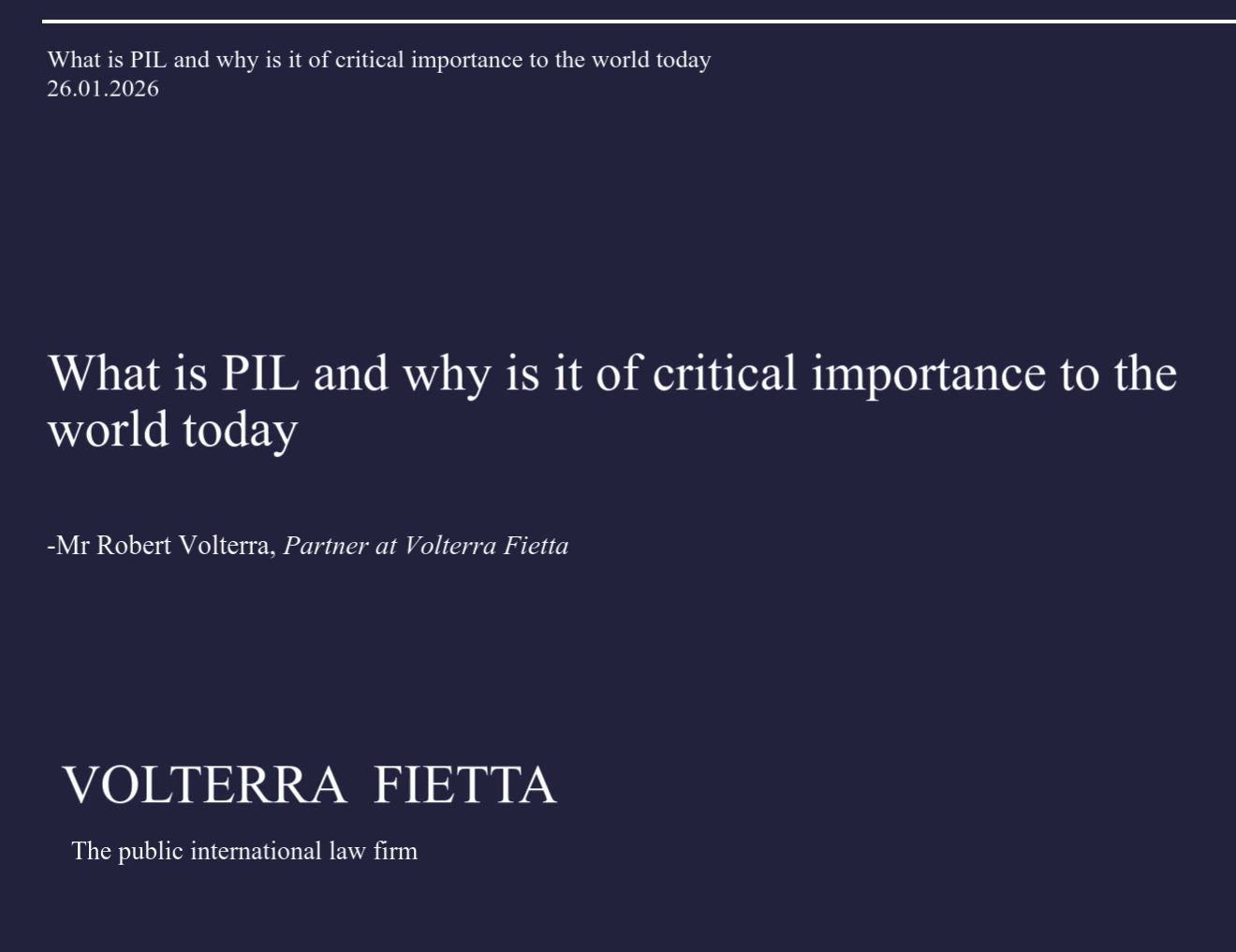Volterra Fietta Partner Graham Coop and Associate Zuzana Morháčová coauthored the chapter on “Energy Charter Treaty Dispute Settlement System” which was recently published in the Max Planck Encyclopedia of International Procedural Law (MPEiPro).
The Max Planck Encyclopedia of International Procedural Law maps and analyses the systems and processes through which international law is made and adjudicated in practice. Each chapter is commissioned by General Editor Professor Hélène Ruiz Fabri and a team of experts at the Max Planck Institute Luxembourg for Procedural Law, providing cutting-edge and rigorously peer-reviewed research on areas of international law that are often underexplored.
The scope of the Encyclopedia mirrors the broad understanding of procedure underlying it, encompassing decision-making by international organs in general, including political and administrative bodies. The Encyclopedia will eventually contain over 1500 entries.
The publication of this chapter is further recognition of Graham’s status as one of the world’s leading experts on the Energy Charter Treaty, international energy law and international investment arbitration. Graham was the General Counsel of the Energy Charter Secretariat for seven years. He has written and edited a wide range of publications, including Energy Dispute Resolution: Investment Protection, Transit and the Energy Charter Treaty published by JurisNet in 2011. Graham is an Honorary Associate of the Graduate School of Natural Resources Law, Policy & Management of the University of Dundee’s Centre for Energy, Petroleum and Mineral Law and Policy. He is also an honorary member of the Investment Treaty Forum of the British Institute of International and Comparative Law. Graham is a member of the Editorial Committee of the International Energy Law Review and of the Journal of Energy & Natural Resources Law. He is also a member of the advisory board of the Association of International Arbitration and a Legal Expert on the Energy Charter Secretariat’s Legal Advisory Task Force. Graham has lectured at numerous universities around Europe and is listed in the Who’s Who in Public International Law. He regularly publishes and speaks in major international conferences on international legal issues, with a particular focus on energy matters.
Zuzana is a Slovak attorney and holds a law degree from Comenius University in Bratislava and an LLM in International Business Regulation, Litigation and Arbitration from New York University School of Law. She advises private entities and States on contentious and non-contentious public international law and international dispute resolution issues, including issues of international energy law. Graham and Zuzana previously co-authored a chapter on dispute resolution in the Handbook on General Provisions Applicable to Investment Agreements in the Energy Sector published by the Energy Charter Secretariat with the support of its Legal Advisory Task Force.
Recent highlights of Zuzana’s practice include representing several States in high-profile proceedings before the International Court of Justice and before United Nations bodies and the Republic of Croatia in four ICSID arbitrations initiated by European banks. Zuzana has represented both States and private clients in multiple investment treaty disputes under different institutional rules, including ICSID, UNCITRAL, SCC and LCIA. She has successfully represented investors in ICSID arbitrations against a Latin American State, obtaining an award worth half a billion USD. Zuzana has also advised a State in the Middle East on a variety of international law matters and a State in the Caribbean on marine pollution issues. Zuzana has also taught evidence before international courts and tribunals at King’s College London and delivered practical training in public international law to government lawyers of a State in the Middle East.
Volterra Fietta
Founded in 2011, Volterra Fietta is the only dedicated public international law firm in the world and has moved quickly to become preeminent in the field of public international law and international arbitration. The firm is ranked in the top tier by all the legal directories. Volterra Fietta acts for States, international organisations and private entities in both contentious and non-contentious matters. The firm is committed to upholding the rule of law internationally and championing the use of peaceful settlement of international disputes as a means of resolving human conflict.
www.volterrafietta.com



